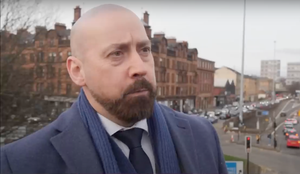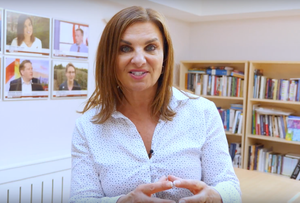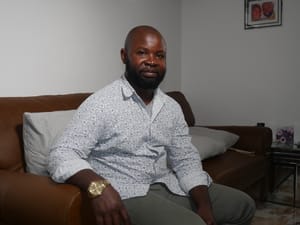Because I was brought up in a Christian home, I have always known the message of Christ and that he came into the world to save us from our sin. I have never knowingly rejected the truth, but for a long time didn’t see that it was relevant to me. My lifestyle wasn’t rebellious or bad, but I was living without God and without knowing him personally in my life. And, therefore, I was still sinful
in the sight of God.
I didn’t know Jesus as my Saviour; my life was just focused on what I could accomplish. My conversion and becoming a real Christian wasn’t a straightforward change.
I cannot tell you the date or even the year, but after reading my Bible and praying for a time (having being told it was a good thing to do), I can clearly remember sitting in the car and realising that the Holy Spirit was indeed with me, and from that moment Christianity became real. Everything that I had read and been told about God made sense; it was real, and not just a story. God sent Jesus Christ to the world to die instead of me, not because of something I have done or will ever do, but because he loves me.
He sent his only Son in my place for everything wrong in my life that I had done, and anything wrong I may do in the future. And all I needed to do was to accept this free gift from God by asking for forgiveness. ‘For the wages of sin is death, but the gift of God is eternal life in Christ Jesus our Lord’ (Romans 6:23).
Even though I knew this to be true, about three years ago I started to have serious doubts about my conversion and whether I truly was a Christian. The doubts really affected me and I found it hard to pray and talk to God, and instead of praying about my problems or asking for help from other Christian friends, eventually I completely stopped talking to God. Then it felt like I didn’t know him at all.
My relationship with him became nonexistent; and, even though I knew it wasn’t right, I lived like this until I started university.
I still continued to live outwardly as a Christian. I didn’t stop going to church; I didn’t get drunk; I told people that I was a Christian.
But the guilt of how hypocritical I was being, doing ‘Christian’ things but having no personal relationship with my Saviour grew, until I finally got angry and upset at God. I couldn’t believe that he had left me and had let me get so far away from him (even though this was none of God’s doing). In reality, he had always been there, it was me who had stopped praying and stopped reading the Bible. I had doubted the one true and almighty God, who makes all things possible.
When I look back, I see that as the point in time when I started to rebuild my relationship with God. It wasn’t immediate. I still could go for a couple of weeks without picking up my Bible, but I had finally realised that there was a problem and the only way I could solve it was to put it all in God’s hands and pray about it.
The only reason that I am now guilt free and can say I do not live my life as a hypocrite, but as sinner saved by the death of Jesus Christ, is because it is the work of God. I expect that I will have doubts again, but I have now known what it is to live at a distance from God, after living for him, and I do not want to be in that position again. I also believe that, by God’s doing, this whole experience has made me a stronger Christian. Before this period in y life, even though I was saved, I was quite content with living my Christian life on the quiet. But now I want to tell people what God has done for me and what he can do for you.
Caroline Gabbott



















